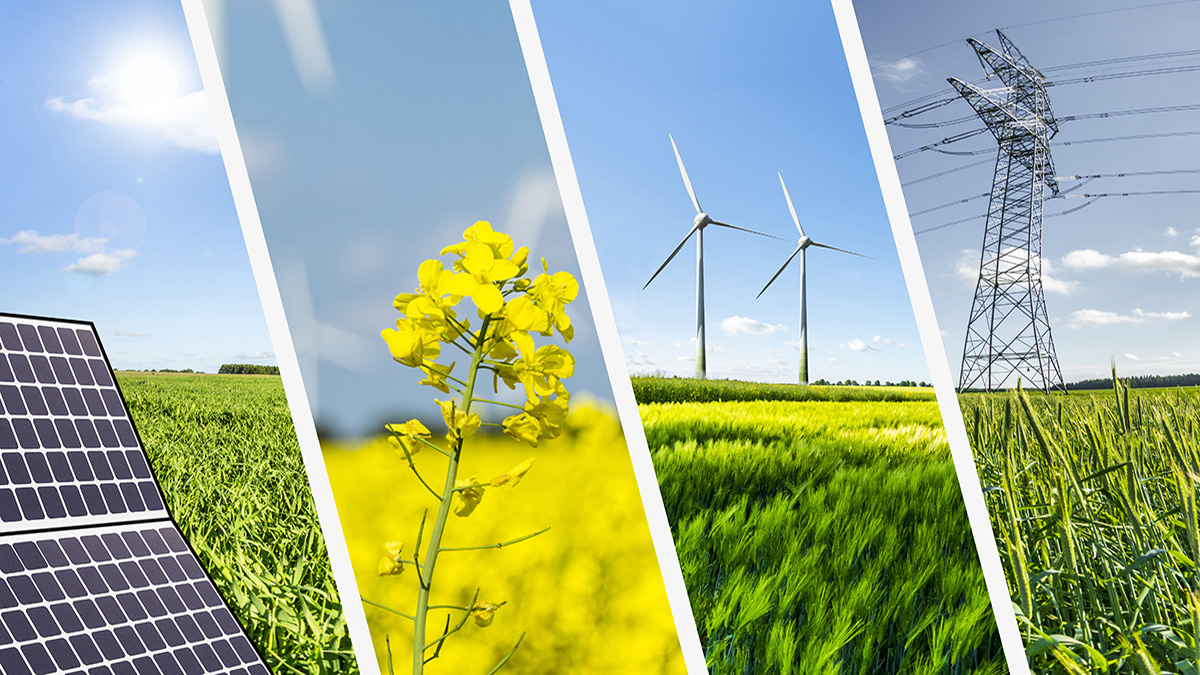Indian Renewable Energy Sector: 2022 Year End Review
The Ministry of New and Renewable Energy is working towards achieving 500 GW of installed electricity capacity from non-fossil sources by 2030.

So far, a total of 172.72 GW of capacity from non-fossil fuel sources has been installed in the country as on 31 October 2022. This includes 119.09 GW RE, 46.85 GW Large Hydro and 6.78 GW Nuclear Power capacity. This has a share of 42.26% of total installed generation capacity in the country i.e. 408.71 GW as on 31 October 2022.
India stands 4th globally in Renewable Energy Installed Capacity (including Large Hydro), 4th in Wind Power capacity & 4th in Solar Power capacity (as per REN21 Renewables 2022 Global Status Report).
A total of 14.21 GW of Renewable Energy (RE) capacity was added, during the period January to October 2022 as compared to capacity of 11.9 GW added during the period January to October 2021. A total of 151.94 BU have been generated from RE sources during the period January to September 2022 as compared to the 128.95 BU during the period January to September 2021.
Simplified Procedure on RTS: To simplify implementation process, Ministry has developed a National Portal wherein any residential consumer from any part of the country can apply for rooftop solar without waiting for Discom to finalise tender and empanel vendors.
The Intra-State GEC Phase-II (InSTS GEC-II) scheme was approved by the CCEA in January 2022. The total target is 10750 ckm intra-state transmission lines and 27500 MVA sub-stations with scheduled commissioning timeline of March 2026.
Production Linked Incentive Scheme (Tranche II) on 'National Programme on High Efficiency Solar PV Modules', with an outlay of Rs. 19,500 crore was approved and launched.
Solarisation of sun-temple and town of Modhera, Gujarat: On 9 October, 2022, Prime Minister, Shri Narendra Modi, dedicated to the nation, India's first Battery Storage and Solar Power based 'Suryagram' - "Modhera" in Gujarat. Imposition of Basic Customs Duty (BCD) on solar cells & modules was done away by the Ministry.
National Bioenergy Programme: The National Bioenergy Programme which comprises the following Sub-schemes was launched on 2 November 2022.
Vayumitra and Jalmitra Skill Development Programme under Human Resource Development Scheme were launched in 2022. Equity infusion of Rs. 1500 crore in IREDA & Rs. 1000 crore in SECI.
Solar Parks Scheme: To facilitate large scale grid-connected solar power projects, a scheme for "Development of Solar Parks and Ultra Mega Solar Power Projects" is under implementation with a target capacity of 40 GW capacity by March 2024. Solar Parks provide solar power developers with a plug and play model, by facilitating necessary infrastructure like land, power evacuation facilities, road connectivity, water facility etc. along with all statutory clearances.
Pradhan Mantri Kisan Urja Suraksha evam Utthaan Mahaabhiyan (PM-KUSUM): To provide energy and water security, de-dieselise the farm sector and also generate additional income for farmers by producing solar power, Government launched PM-KUSUM Scheme for farmers.
Off-grid Decentralized and Solar PV Applications Programme Phase III: Phase III of the Off-grid Decentralized and Solar PV Applications Programme for Solar Street Lights, Solar Study Lamps and Solar Power Packs was available till 31 march 2021. In the current year, a total of 56,670 number of solar study lamps were distributed. During the closure of the installation of the programme, over 1.46 lakh solar street lights were installed, 9.71 lakh solar study lamps were distributed and 2.5 MW solar power packs have been set up as reported by State Nodal Agencies (SNAs).
Atal Jyoti Yojana (AJAY) Phase-II: The AJAY Ph-II Scheme for installation of solar street lights with 25% fund contribution from MPLAD Funds was discontinued from 1 April 2020 as the Government decided to suspend the MPLAD Funds for the next two years i.e. 2020-21 and 2021-22. In the current year, a total of 14,176 number of solar street lights were installed. During the closure of the installation of the programme, over 1.37 lakh solar streetlights were installed.
Green Energy Corridor: In order to facilitate renewable power evacuation and reshaping the grid for future requirements, the Green Energy Corridor (GEC) projects have been initiated. The first component of the scheme, Inter-state GEC with target capacity of 3200 circuit kilometer (ckm) transmission lines and 17,000 MVA capacity sub-stations, was completed in March 2020. The second component - Intra-state GEC with a target capacity of 9700 ckm transmission lines and 22,600 MVA capacity sub-stations is expected to be completed by March 2023.
Wind Energy: A total capacity addition of 1761.28 MW has been achieved during the period of January to October 2022.
National Green Hydrogen Mission: In the Independence Day address on 15 August 2021, Hon’ble Prime Minister announced the National Green Hydrogen Mission and stated the goal to make India the global hub of Green Hydrogen production and export. The MNRE is accordingly developing the National Green Hydrogen Mission with the objectives of decarbonising major economic sectors, making India energy independent and serving as an inspiration for the global clean energy transition. The Expenditure Finance Committee (EFC) approved the proposal on the National Green Hydrogen Mission in April 2022.
International Solar Alliance: International Solar Alliance (ISA) was launched by the Prime Minister of India, and the President of France on 30 November 2015 at Paris, France. With the signing and ratification of the ISA Framework Agreement by 15 countries, on 6 December 2017, ISA became the first international intergovernmental organization to be headquartered in India.
On 15 July 2020, an amendment came into force, which enables all member States of the UN, including those beyond the tropics, to join the ISA. As on 30 November 2021, 110 countries have signed the Framework Agreement of the ISA. Of these, 90 countries have also ratified the same.
The fifth Assembly of International Solar Alliance was held on 18 October 2022. India and France have been re-elected as the President and Co-President of ISA Assembly for a third consecutive two year term for the period Oct-2022 to Oct-2024.